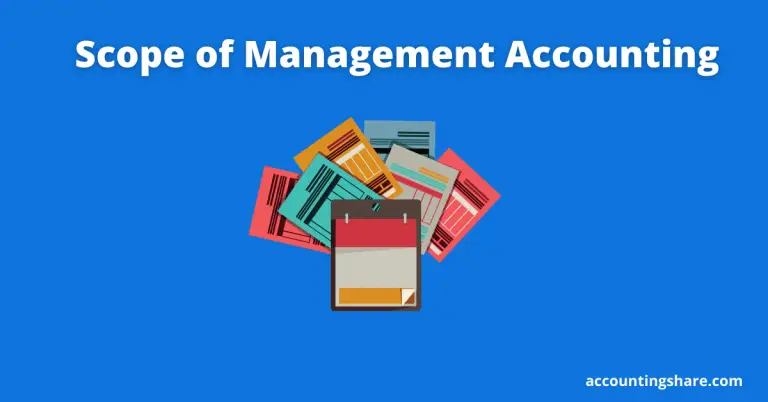Top 6 Objectives of Management Accounting [With PDF]
The main objective of management accounting is to assist management in the decision-making process by providing the various information needed.
In addition to this management accounting, there are many other objectives, which are as follows:
What are The Objectives of Management Accounting?
The top 6 objectives of management accounting are as follows:
1. Decision Making:
The success of any endeavor depends on making the right decision. In every case, business owners and managers have to make the right decisions while running the organization.
Business owners or managers use management accounting information as a decision-making tool.
Management accounting usually provides a qualitative analysis of various decision-making opportunities.
Managers can preview each opportunity through quantitative analysis to ensure that they clearly understand business decisions.
2. Budgeting and Forecasting:
Budgeting and forecasting is another primary objective of management accounting. Its concern with the preparation, in collaboration with operations and other departments, of fixed and flexible budgets, cash forecasts, profit and loss forecasts, etc.
Management accounting allows the management accountant to prepare the organization’s various types of budget.
When there is a difference between actual results and budgets, then the extent by which actual results have exceeded or fallen short of the budget is revealed by the budgetary control.
3. Interpreting the Data:
Analysis and interpretation of financial statements is an essential objective of management accounting.
After analyzing the financial statements, management accounting shall present the interpretation. Management uses the reports drawn from the analysis.
The main task of management accounting is to interpret the accounting data to the authorities.
4. Management Reporting:
For decision making and control purposes, the interpreted data must be communicated to top management. The report may cover the profit and loss account, cash flow and cash flow statements, etc.
Management Accounting involves preparing and submitting performance reports of various management activities at regular intervals for effective planning, control, performance assessment, and decision-making.
5. Operations Coordinating:
An essential objective of management accounting is to coordinate the organization’s activities by first getting operational budgets prepared and then blending the organization’s entire activities by integrating all operating budgets into the master budget.
6. Controlling the Business:
Management Accountants have a dual reporting relationship consistent with other roles in today’s corporation.
Management Accountants are responsible for managing the business team as a strategic partner and provider of decision-based financial and operational information.
You may also read:







